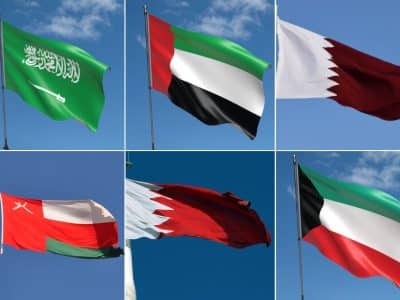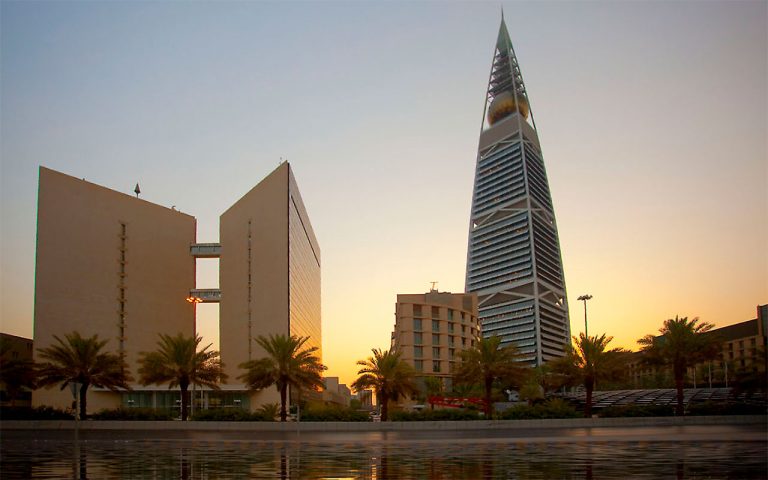International companies looking to secure government contracts in Saudi Arabia may be forced to pay top dollar to staff in order to encourage them to make the move to the kingdom, according to a leading recruitment expert.
Saudi announced last week that, from January 2024, government and state-backed institutions will stop signing contracts with foreign companies that base their Middle East headquarters in any other country in the region, in a move intended to limit “economic leakage” and boost job creation.
The decision is the latest measure designed to encourage firms to beef up their presence in Saudi Arabia’s capital of Riyadh, supporting a broader plan to diversify the economy of the world’s largest crude exporter.
But Justin McGuire, co-founder and CEO – MENA & APAC, DMCG Global, warned: “Companies may need to look at substantial pay hikes in order to move talent to Riyadh and as it stands, there isn’t anywhere near the number of qualified applicants in the kingdom able to fulfil many of the positions that will be required to support a headquarters move.”
Some businessmen say Saudi Arabia is a sleeping giant that’s waking up, with a consumer market three times the size of the United Arab Emirates, planned mega-projects worth hundreds of billions of dollars and a young, rapidly-changing society that’s almost unrecognisable from the ultra-conservative kingdom of five years ago.
McGuire said: “Yes KSA can lure in the big projects and big bucks, but the reality is that many individuals and families prefer living in places such as Dubai. I just can’t see that changing by 2024.”
 Justin McGuire, co-founder and CEO – MENA & APAC, DMC Global
Justin McGuire, co-founder and CEO – MENA & APAC, DMC Global
Saudi’s Crown Prince has pushed an $800 billion strategy to double the size of Riyadh and turn it into a global hub, while the Royal Commission for Riyadh City has targeted attracting as many as 500 foreign companies to set up their regional headquarters in the capital over the next ten years.
Earlier this month it was announced that 24 companies had already confirmed their switch to Saudi, including Deloitte, Bechtel and PepsiCo.
Domenic Falzarano, regional director – Saudi Arabia, Michael Page, told Arabian Business: “Pre-Covid, it was not uncommon for employees to be commuting from UAE (or other GCC countries) to Saudi Arabia for work each week, which in the long run is unsustainable. It makes sense for companies and employees to be based in Saudi Arabia, and as changes continue to take place in the kingdom, more will make the move.”
The latest announcement is expected to place pressure on other GCC countries, particularly the UAE, which has already started pushing forward on efforts to make the country more attractive to foreign firms and encourage expatriates to put down deeper roots. It has decriminalised cohabitation of unmarried couples, allowed expatriates to marry, divorce and use inheritance laws of their home countries, and removed a requirement to have a license to consume alcohol.
Despite this, Falzarano does not envisage a talent war developing between Gulf nations.
 Domenic Falzarano, regional director – Saudi Arabia, Michael Page.
Domenic Falzarano, regional director – Saudi Arabia, Michael Page.
He said: “There has always been a demand for top talent in the region and seeing candidates relocate between GCC countries is not something new, since it is easier recruiting a candidate who already has the experience and knowledge of the region.
“Right now we are not only noticing a number of candidates relocating from other GCC countries to Saudi Arabia, but also from elsewhere across the globe; this is due to the transformation and the sheer demand for talent required for the giga-projects.
“That said, the GCC continues to offer a high standard of living for expats and will continue to be a region which attracts highly skilled and experienced candidates.”








